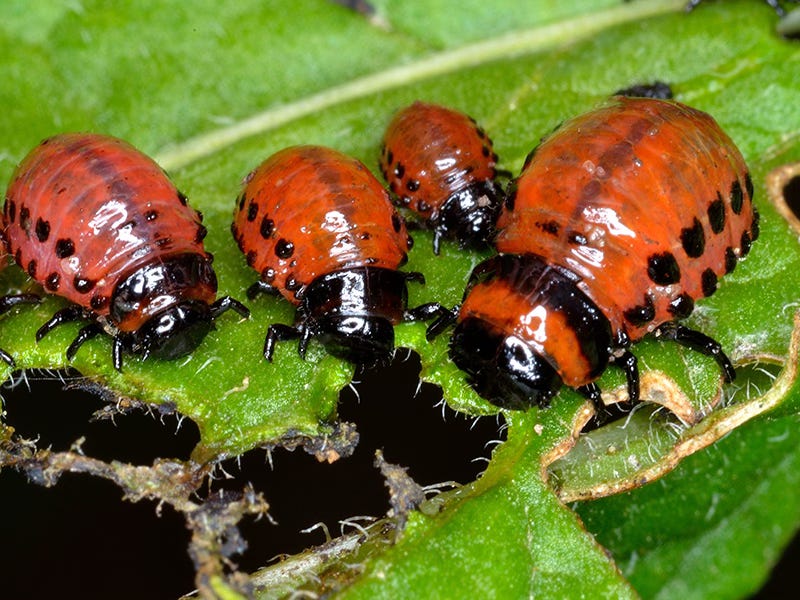The villains of today’s Good Thing are these creatures:
Those, my friends, are Colorado potato beetle (Leptinotarsa decemlineata) doing what they, with their distinctive yellow-and-black striped appearance, do best and that, unfortunately, is to eat potato leaves and plants (they also dine on eggplant and tomatoes…)
Their destructive potential is staggering—their larvae alone possess the capacity to completely defoliate potato crops, achieving 100% destruction of plant foliage. What makes this agricultural challenge particularly compelling is the beetle's remarkable adaptability: it has developed significant resistance to traditional insecticides, creating an urgent need for innovation. To illustrate the magnitude of this impact, consider that in 1994, Michigan alone suffered $13.3 million in combined insecticide costs and crop losses—representing nearly 14% of the state's total potato crop value. Globally, these beetles exact an astounding toll of $500 million in annual crop losses.
And with climate change and modern transportation improvements the beetle is primed to spread it and cause damage on a global scale:

But fret not ye lovers of potatoes! We have an insecticide breakthrough that brings with it a tailored approach and an architecture that can be extended to other pests and crops.
More after the paywall.
Keep reading with a 7-day free trial
Subscribe to One Good Thing to keep reading this post and get 7 days of free access to the full post archives.





